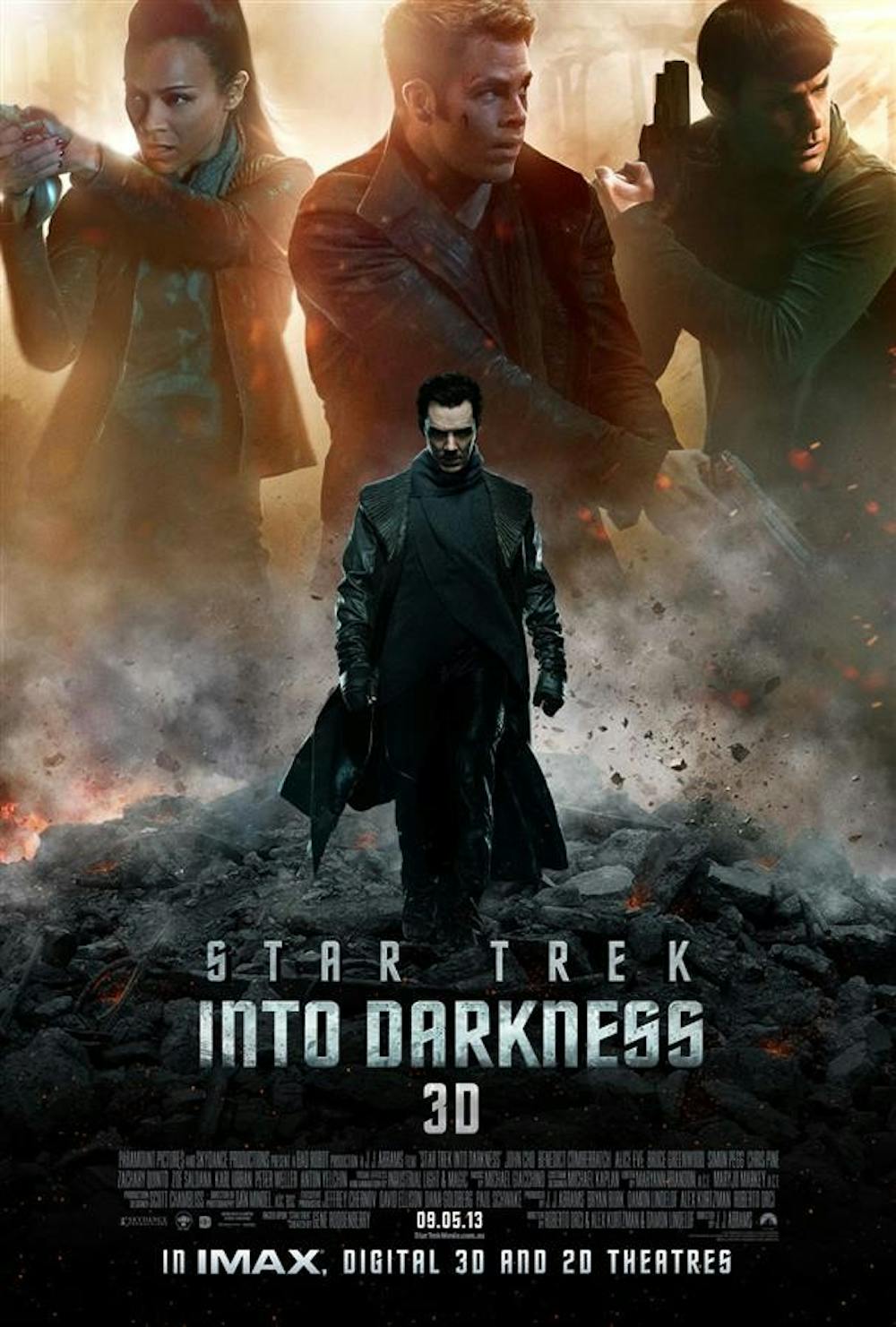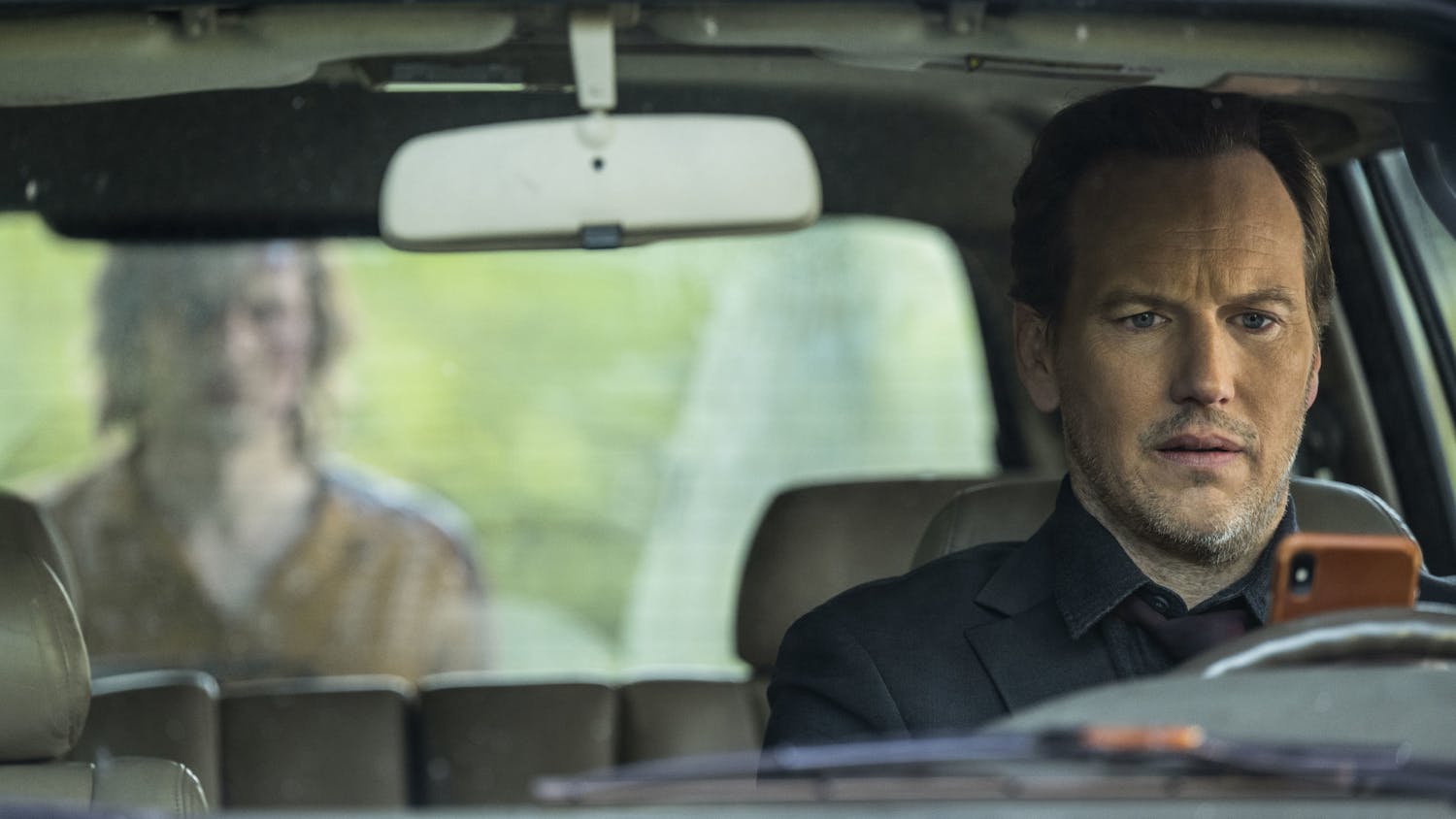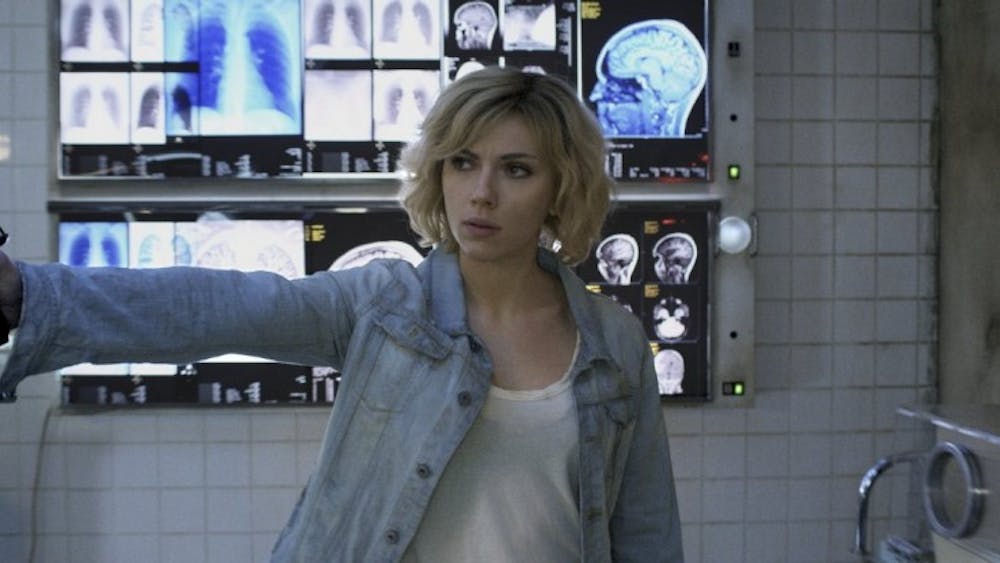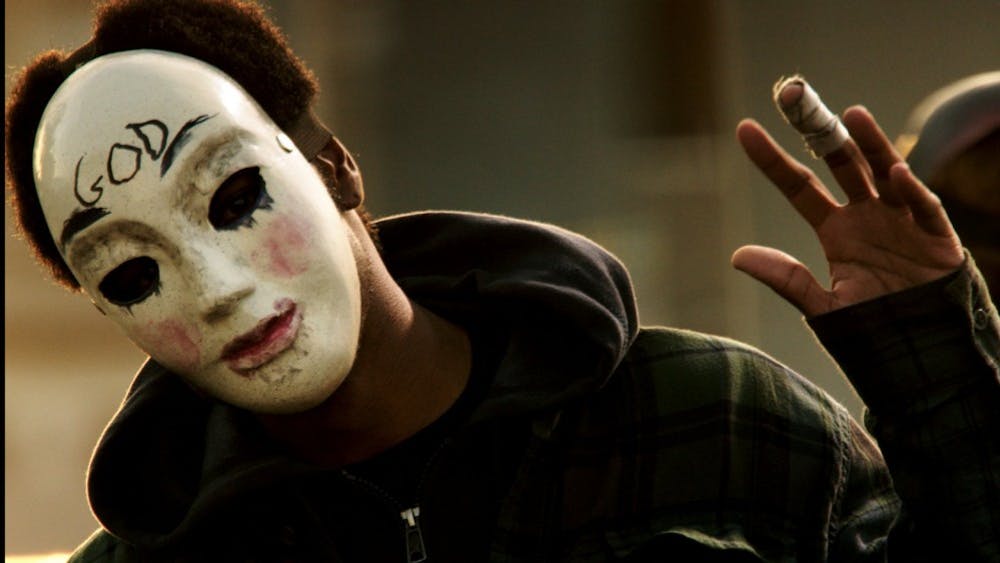I wanted to love “Star Trek Into Darkness.” Given the stellar acting by most of the cast, the fabulous special effects and the attractive modern cinematography, I should have.
But I didn’t.
Maybe it’s because I’m an English major with a tendency to actually analyze the things I see. Maybe it’s because I’m a woman. Maybe it’s because I was raised by two Trek superfans (I’m talking conventions and costumed family photos) who gave me high expectations.
For someone unfamiliar with the Trek universe, “Darkness” would be a satisfying experience. Not particularly thought-provoking, but with enough fighting and zooming through space to keep things entertaining.
This is the main problem with the film, though — it doesn’t know what it wants to be.
Is it an action movie or a dramatic sci-fi epic? Is it meant for fans or just joe schmos who’ve wandered into the theater?
Certain plot arcs are written with delicate power. However, for every promising moment, there’s an equal and opposite dud.
One of the good plotlines is the exploration of the budding friendship between Kirk and Spock.
In “The Wrath of Khan,” the original Trek film that “Darkness” is loosely based on, Kirk and Spock’s friendship drives the plot. In “Khan,” they are older, with years of shared experiences. Although the film is about facing the eponymous wrath of the villainous Khan, it’s also about how to define friendship and shared respect between two very different characters.
In “Darkness,” which follow’s the 2009 reboot’s alternate timeline, Kirk and Spock are both young men, without the years together of their “Khan” counterparts.
“Darkness” had a chance, though, to explore the same ideas, and to make character relationships central to the film’s development.
It tries, clumsily, but ultimately fails, deciding to eschew nuanced character interactions for awkwardly extended fight scenes. One of the best scenes in the film (spoilers ahead) involves a dying Kirk’s last words to Spock.
The portrayals of the two character’s budding friendship are consistently the best examples of acting in the entire movie, but they are few and far between.
Where friendships are handled with at least some care, romantic relationships and politics are clumsily thrown in for effect.
Uhura, formerly a strong female character, becomes boyfriend-obssessed in “Darkness,” so intent on discussing her feelings with her flame Spock that she decides to have a relationship discussion in the middle of an important mission, in front of their captain. It’s embarrassing.
Dr. Carol Marcus, who, in the original Star Trek series, was a tough, independent woman, and the only person who ever broke Kirk’s heart, is here reduced to an illogical, emotional damsel in distress, complete with gratuitous half-nude scenes.
Both Uhura and Marcus are insulting to women in the audience and to Star Trek fans everywhere.
This isn’t “Transformers.” The women are allowed to have substance and purpose in the Trek universe, and they did, even decades ago in the original series, until the movie’s writers inexplicably took it away from them.
And then there’s the villain Khan, played in this modernization by a snake-like Benedict Cumberbatch. He does diabolical excellently, but his evil backstory drowns in a sloppy combination of bad writing and too much plot. If writers had just let Khan wreak havoc on center stage, without subplots of Starfleet corruption and space politics, he could have been delightfully bad. But he never really gets the chance to show his wicked self, which could have been very entertaining.
“Star Trek Into Darkness” could have been good. There’s a way to make a thoughtful action/sci-fi movie, and there are innumerable great examples.
But the movie seems like director J.J. Abrams couldn’t really decide whether he wanted to make another explosion-happy “Transformers” or actually spend time and effort to make a good film. Even with the militaristic tone of the franchise’s reboot, the allure of “Trek” is in the exploration.
If we want to watch movies about space fights, we could watch pretty much every bad sci-fi movie of the past 40 years. But “Trek” has always been about the moments between the fights. And when Abrams and the writers of “Darkness” lose that, they lose almost everything that’s unique about the franchise.
Star Trek Into Darkness

Get stories like this in your inbox
Subscribe





